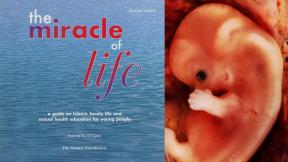
Most people would agree that the presence, production, and use of pornography has no general benefit to society. This is particularly true when it is aggressively marketed, easily accessible with few, if any, safeguards for minors, and consumed voraciously due to its affordability and anonymous nature. How does one find him/herself on this path or engaging in this practice?
While there are a multitude of articles outlining and describing the many risk factors related to porn use, and even more written on the topic once an individual becomes a user or addict, there is little available on preventive measures. It may be best to take a step back from primarily looking at pornography from a disease model, one of being unhealthy, and look first at how we understand sex from a health model.
This approach, while ideal, is challenging for two reasons: sexual health is often equated with the prevention of STIs (sexually transmitted illnesses) and unplanned pregnancies; and sex education seems to start, and stop, in middle and high school. Access to quality and consistent information, professional advice, and guidance on matters related to sex are extremely limited in the Muslim community. Research conducted on Muslims and sex education indicate that:
- A Muslim child’s first introduction to sexual education is in a school setting, usually public school.
- The sexual education offered in school is not from an Islamic perspective, and often presents values contrary to Islamic guidance.
- Many parents decide not to have their children participate in school-provided sex education and opt for an in-home version instead (which often does not happen).
- Some parents provide sex education at home but the focus is often on marriage as a solution to any potential problems.
- Parents teach and model what they have learned (which is often limited), increasing the likelihood for limited communication about sex and/or reinforcement of the disease model.
- Most adults admit to feeling uncomfortable talking about sex to their children or spouse.
Some of the driving forces preventing robust sexuality education, for children or adults, are often rooted in cultural and social practices that create feelings of embarrassment, shame, and judgement. These practices are not consistent with the teachings of the Prophet Muhammad, peace and blessings be upon him, who was never shy in discussing the topic of sex or reminding the believers of its presence as a blessing from a Benevolent Creator. The amazing complexities of the male and female anatomy, as well as the physiology related to sexual function and its positive impact on our physical and emotional health, are amongst the many signs of Allah’s mercy and Hikma (wisdom).
The Prophet presented sex as something that is beyond procreation, and he did so in opposition to commonly-held beliefs at the time. This should provide the believer with an example, and an opening, to read, learn, and be curious about what Allah has created for us. There is much to learn and know about sex and acquiring this information can help build a solid foundation for the individual and for his/her readiness to provide sex education to children as well. Important topics include:
- The sexual response cycle
- Arousal and desire
- The role of hormones
- Physiological differences between men and women
- Pleasure
- Safety
There are few, if any, areas of life where an individual stops learning as soon as they engage in an activity. Most adults don’t stop learning new recipes or finding new ingredients once they have cooked a meal for the first time, nor do they stop being curious about technology once they learn how to use a computer or smartphone. However, when it comes to sex, that is exactly what many people do. Instead of continuing the pursuit of knowledge around desire, intimacy, sensation, arousal, and the role sex will play in their lives, they just stop learning.
Since the pursuit of knowledge and never-ending improvement is the essence of our lives as Muslims, these pursuits should be demonstrated in the realm of sexuality education as well. It is the hope that this series of articles, to include psychological and social factors of sex, will provide a continuing source of information and support for curiosity and the need to know about and understand this very important topic.
Moira McGuire, BSN, RN-BC, CSC, is a certified Psych/Mental Health Nurse and an American Association of Sexuality Educators, Counselors, and Therapists (AASECT) certified sexuality counselor. She is an active duty public health service officer and currently the chief of Integrative Health and Wellness at a military hospital outside of Washington, D.C.








Add new comment